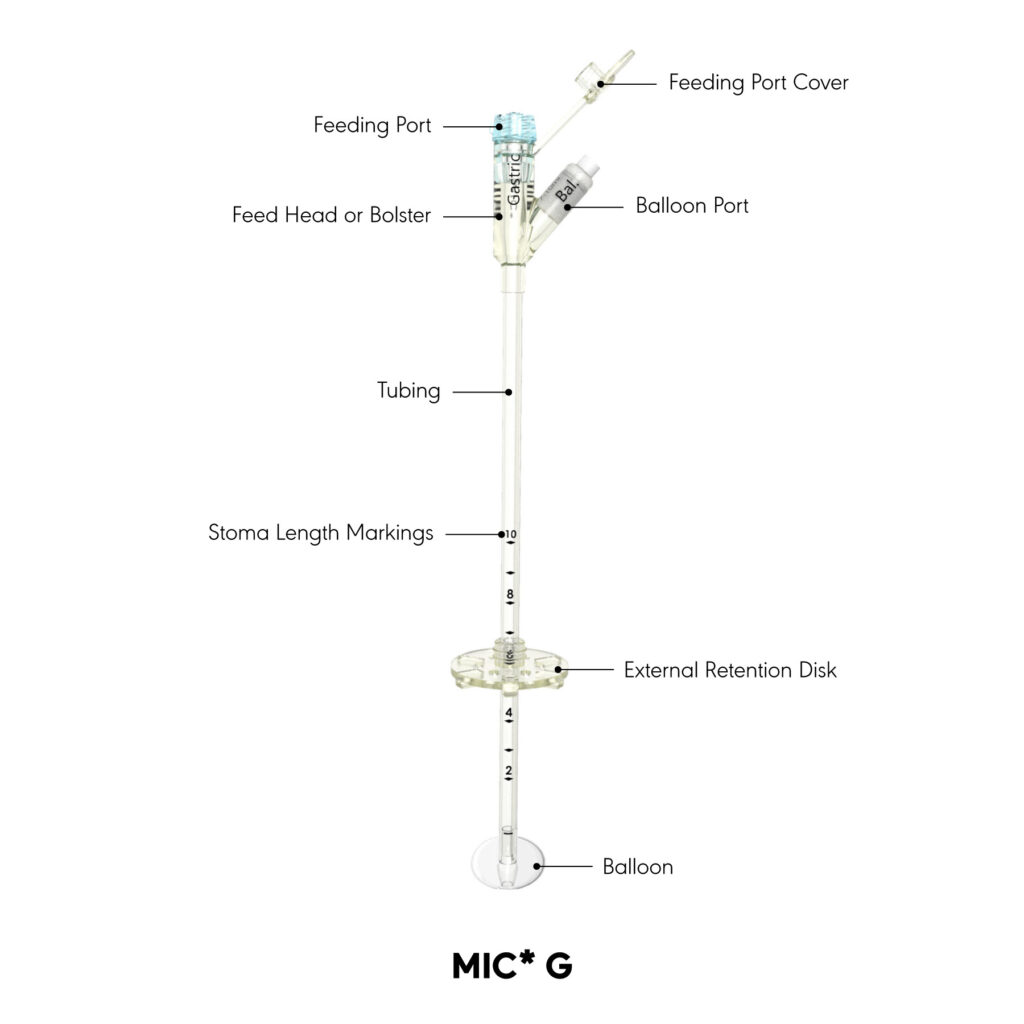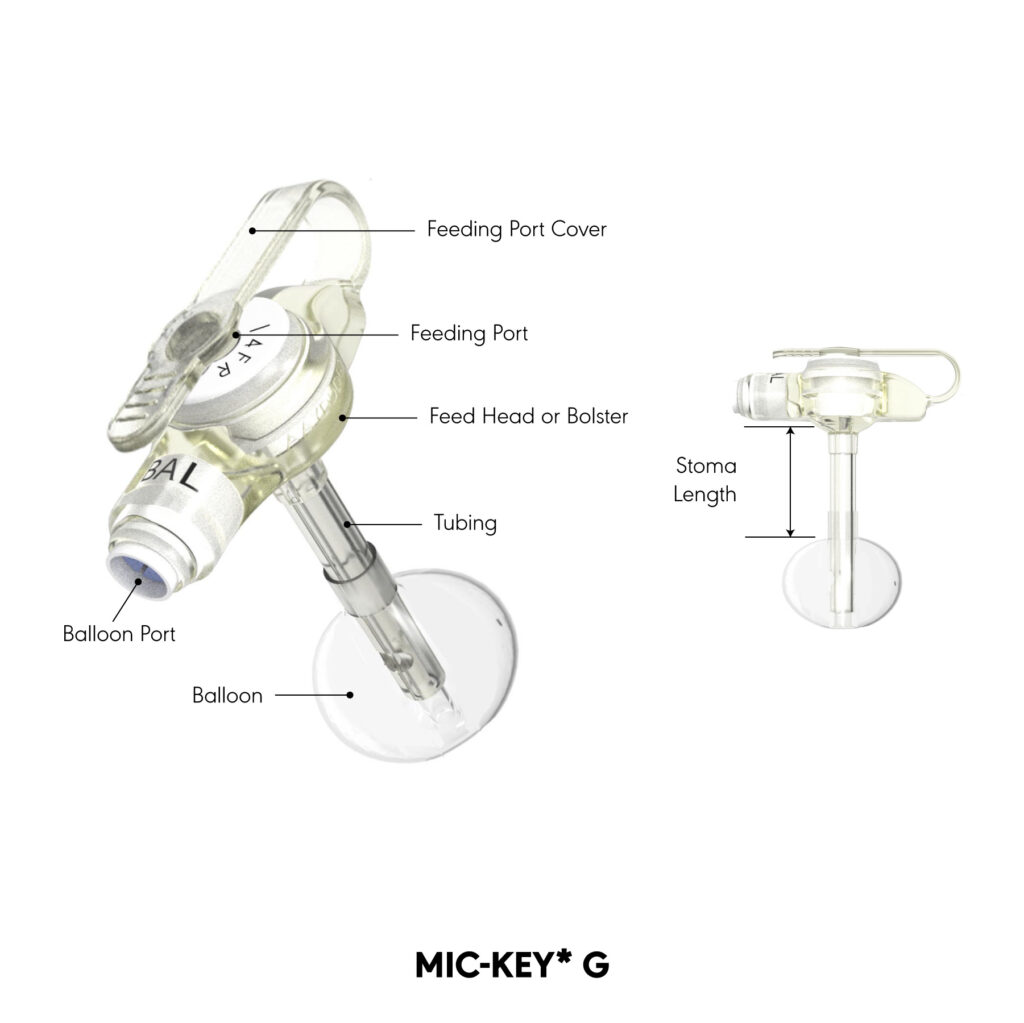Gastrostomy (G) Tube
G-Tubes are similar to PEG-Tubes in that they go through the abdomen and into the stomach for long-term feeding, however, they’re a little different in how they look. G-Tubes may have a water filled balloon that keeps it in place on the inside of your stomach. They can also either be a standard length tube or a low-profile tube, that lies closer against the skin, and can be easier to hide beneath clothing. Low-profile tubes can allow more freedom and mobility as you may be about to get around without getting your tube caught or yanked as easily.
G-Tubes are typically placed after you receive a PEG and your stoma heals, but in some cases, doctors may be able to place a G-Tube, and even a low-profile G-Tube, initially. If placed initially, G-Tubes will require surgery. These types of tubes are unique from most others in that once your stoma tract has healed and you’ve been given approval and guidance from your doctor, G-Tubes, both standard length and low-profile, can be replaced at home.

